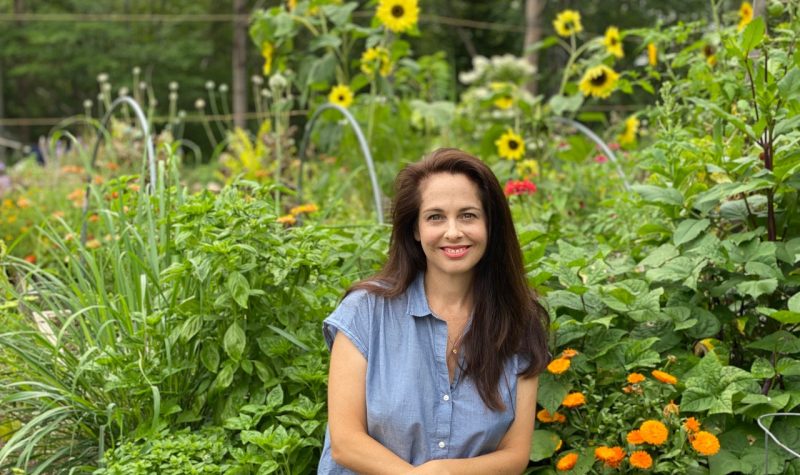A 2018 study on household food security in Canada stated that Nova Scotia had the highest rate of food insecurity out of any province. Although food security is a national issue, with so much food mass-produced and processed, well-known Nova Scotia gardener Niki Jabbour says one of the ways to increase food security is by growing foods in your backyards, decks or patios.
Jabbour is the award-winning author of four books including The Year-Round Vegetable Gardener and Growing Under Cover. She was given the Distinguished Alumnae Award in 2021 by Dalhousie University, which recognizes outstanding service and commitment to the Faculty of Agriculture, industry and the Alumni Association.
Jabbour, who grows many different food crops in her backyard, said she noticed an increased interest in gardening during the past three years.
"I first really noticed the increase in 2008, when we had financial problems with the banks and such, so people started growing, going back to vegetable gardening, not just their grandparents, but more people started growing food again," said Jabbour.
She said people worried about food security should concentrate on growing high-value crops, which can be at higher costs, but are easy to grow for beginners.
"Things like cherry tomatoes, beans, peas, squash, potatoes, and culinary herbs. Herbs add a lot of flavour and nutrition to our meals and they're very easy to grow but expensive to buy."
Another way to increase food security is through urban farms and community gardens. Jabbour said more apartments and condominiums in the city putting in food gardens will raise beds so they can be accessed by whoever needs them.
"For people that are food insecure, having access to seeds, soil amendments, organic fertilizers, and even some basic tools, like a tool library would be a fantastic idea, according to Jabbour."
"There are many ways that we could be putting underused urban spaces to use, to grow food."
Jabbour suggested an idea such as growing potatoes in available green park spaces filled with grass and giving them to the community food banks.
There are a variety of plants that can grow in Nova Scotia due to the climate and rich soil. In her third book, Niki Jabbour's Veggie Garden Remix, she also discusses growing global fruits and vegetables such as muskmelons.
"There are your traditional vegetables, tomatoes, which are the most popular garden vegetable, potatoes, cucumbers, beans, and peas, zucchini, carrots, root crops, of course, so we can grow a lot of your traditional vegetables, and we can grow a lot of other types of vegetables as well."
Biodiversity is key, adding different flowers to attract good bugs and pollinators will make for a balanced ecosystem.
If people are interested in harvesting crops during the winter, there are products that can help such as cold frames, greenhouses, and mini hoop tunnels, which can also be made at home.
For students or beginners interested in gardening, Jabbour says the best way is to start small with a few containers, or boxes and consider what they enjoy eating or growing. Whether it's growing flowers to support bees, or planting milkweed in a container to attract monarch butterflies, there are many options for plant growth in Halifax.
Growing up, Jabbour always had a summer garden which got her interested in gardening.
"We would pick the beans, dig the potatoes, pull carrots or pick tomatoes, which was such fun, it was like a buried treasure hunt."
She also encourages people to try it saying growing food is not as difficult as one might think.
Listen to the full interview below:


